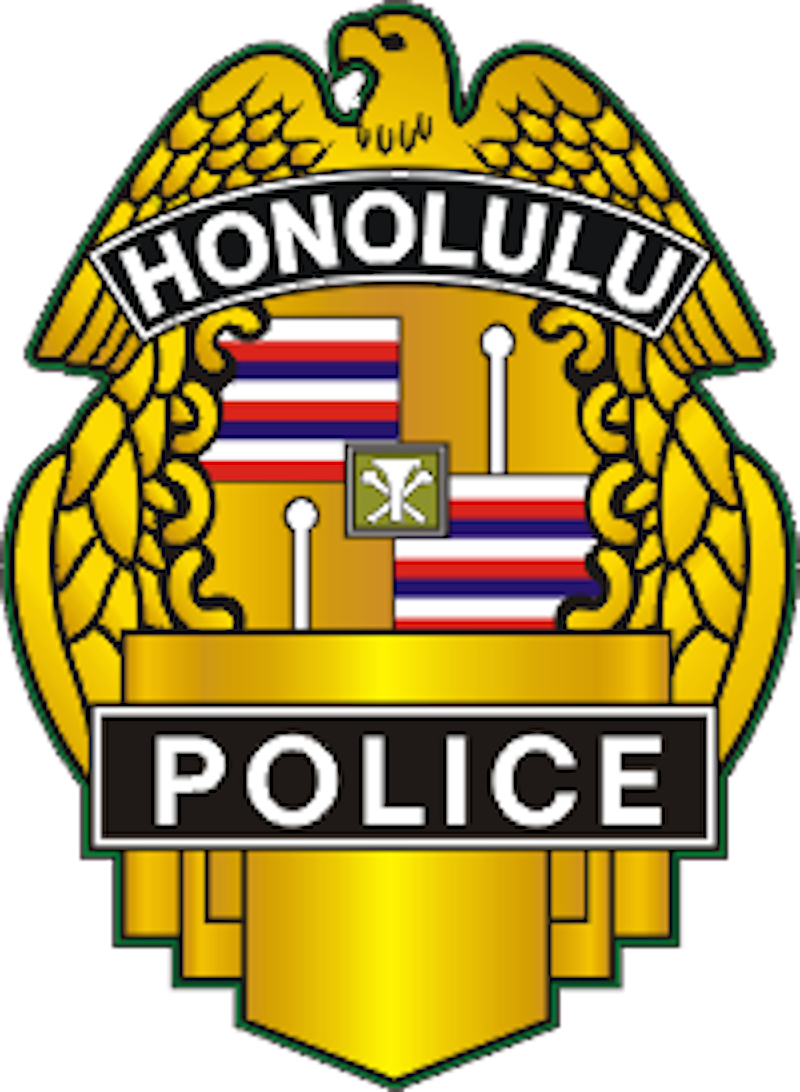The Honolulu Police Department does not permit
its employees to perform their duties when they
may be a danger to themselves or others because
of alcohol use. As such, this directive establishes
guidelines to regulate employees’ alcohol-use
problems; identify those who become impaired
by alcohol; and treat, counsel, or discipline them as necessary.
OVERVIEW
A. The department’s commitment to providing
a safe, healthy, and efficient work place for its
employees and quality law enforcement services to
the public is a compelling reason to maintain an
alcohol-free work environment.
B. Employees’ inappropriate use of alcohol
potentially risks their safety, the safety of
coworkers, and the safety of the community.
This policy establishes the department’s efforts
to reduce these risks and provide for the
well-being of its employees.
DEFINITION
Alcohol as defined by Sections 291E-1 and 244D-1,
Hawaii Revised Statutes, is applied in this directive.
A. In Section 291E-1, “Alcohol” means the
product of distillation of any fermented liquid,
regardless of whether rectified, whatever may be
the origin thereof, and includes ethyl alcohol,
lower aliphatic alcohol, and phenol as well as
synthetic ethyl alcohol, but not denatured or
other alcohol that is considered not potable
under the customs laws of the United States.
B. In Section 244D-1, “Alcohol” means ethyl
alcohol, hydrated oxide of ethyl, or spirits of wine,
from whatever source or by whatever process produced.
REGULATION
Restrictions in this section do not apply when
alcohol is handled for evidentiary purposes or
possessed or consumed for specific, department-
authorized operations (e.g., undercover assignments and training).
A. Employees shall not report for or be on
duty if their fitness for duty might be perceived
as being impaired by alcohol consumption.
B. Employees shall not possess or consume
alcohol while on duty or in a departmental facility.
C. Employees shall not physically handle
department-issued or supplemental firearms while
consuming alcohol or while impaired by the consumption of alcohol.
D. Employees shall not enter any place for
the purpose of obtaining alcohol while on duty.
E. The odor of an alcoholic beverage on an
employee’s breath shall be considered reasonable
suspicion that alcohol has been consumed.
MONITORING PROGRAM
The department’s alcohol-use monitoring program provides for the following:
A. The early identification of employees
with problems related to alcohol use. Policy
3.12, EMPLOYEE EARLY RECOGNITION SYSTEM, together
with supervisors’ and coworkers’ observations,
shall be used in the early identification of
employees who may have problems related to alcohol use.
B. Evaluation and Intervention
Along with psychological evaluation and counseling,
the department facilitates employee intervention,
assistance programs, and rehabilitation.
1. Employees who have or believe they have
problems related to alcohol use are encouraged
to seek assistance voluntarily without fear of
placing their jobs in jeopardy for seeking such help.
a. When voluntarily seeking assistance,
employees may explore private medical or
psychological care outside of the department at their own expense.
b. The Human Services Unit (HSU) is also
available for psychological treatment and/or
referral to appropriate psychological treatment services.
2. During the period an employee undergoes
treatment for an alcohol-related problem, the
employee may be permitted to remain on full-duty
status or be offered a limited-duty position at
the discretion of the Chief of Police.
C. Monitoring Compliance
Employees’ compliance with this policy is
monitored with administrative oversight and
review and disciplinary actions as appropriate.
1. Employees’ Responsibilities
a. Employees shall not report for or be
on duty if their fitness for duty might be
perceived as being impaired by alcohol consumption.
b. Employees shall not possess or consume
alcohol while on duty or at a departmental
facility unless required to do so for their assignment.
c. Employees shall not physically handle
department-issued or supplemental firearms while
consuming alcohol or while impaired by the consumption of alcohol.
d. When off-duty officers believe that
alcohol impairs their performance of police
duties, they shall request for an on-duty
officer if they are in a situation that requires police response.
e. In the interest of personal and public
safety, employees are encouraged to inform their
supervisors of behavior that indicates another
employee might be performing duties while under the influence of alcohol.
f. Each employee is ultimately responsible
for his or her personal problem with alcohol use
and taking corrective action such as treatment or counseling.
2. Supervisors’ Responsibilities
a. Supervisors shall not permit an employee
to remain at work if there is reason to believe
that the employee’s ability to work may be impaired.
Such reasons can include (but not be limited to)
knowledge that an employee consumed an alcoholic
beverage before reporting for duty.
b. Supervisors who have reason to believe
that an employee’s fitness for duty may be
impaired by alcohol consumption shall proceed
as follows if the employee is a member of the
State of Hawaii Organization of Police Officers
or United Public Workers union:
(1) Refer the employee to the HSU for an alcohol abuse evaluation;
(2) Place the employee on an appropriate leave;
(3) Notify the element commander; and
(4) Initiate an investigation into the matter.
c. Supervisors who have reason to believe that
a Hawaii Government Employees Association (HGEA)
employee’s fitness for duty may be impaired by
alcohol consumption shall follow the HGEA Drug
and Alcohol Testing guidelines.
COMMANDER RESPONSIBILITIES
An element commander who has reason to believe
that an employee has an alcohol use problem
shall ensure that all relevant provisions of this policy are applied.
